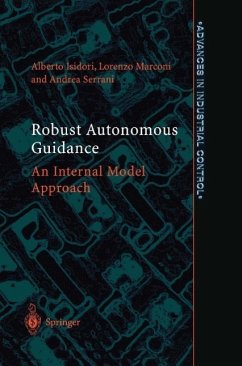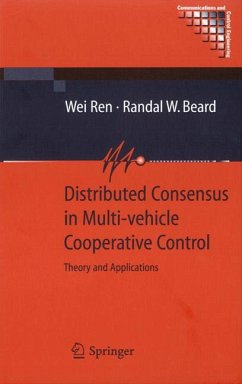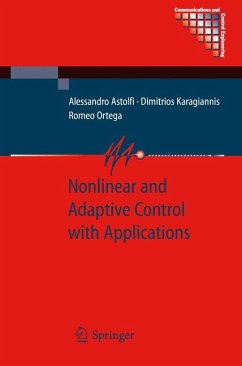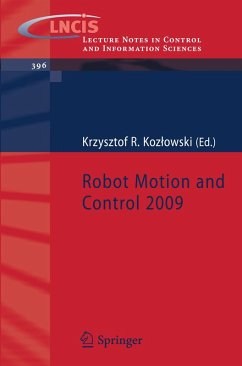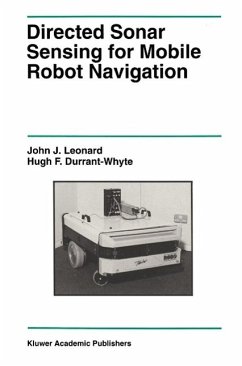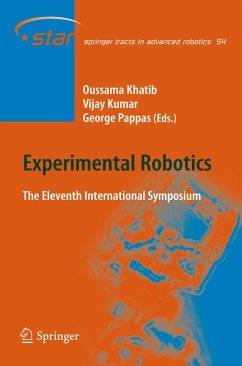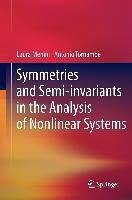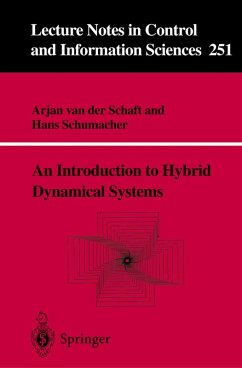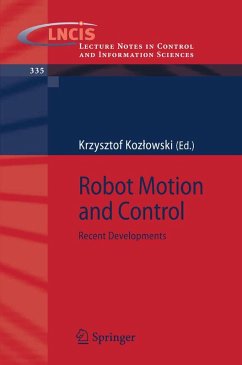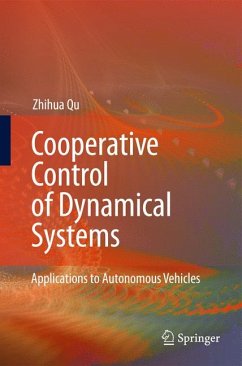
Cooperative Control of Dynamical Systems (eBook, PDF)
Applications to Autonomous Vehicles
Versandkostenfrei!
Sofort per Download lieferbar
72,95 €
inkl. MwSt.
Weitere Ausgaben:

PAYBACK Punkte
36 °P sammeln!
Stability theory has allowed us to study both qualitative and quantitative properties of dynamical systems, and control theory has played a key role in designing numerous systems. Contemporary sensing and communication n- works enable collection and subscription of geographically-distributed inf- mation and such information can be used to enhance signi?cantly the perf- manceofmanyofexisting systems. Throughasharedsensing/communication network,heterogeneoussystemscannowbecontrolledtooperaterobustlyand autonomously; cooperative control is to make the systems act as one group and exhibit certain ...
Stability theory has allowed us to study both qualitative and quantitative properties of dynamical systems, and control theory has played a key role in designing numerous systems. Contemporary sensing and communication n- works enable collection and subscription of geographically-distributed inf- mation and such information can be used to enhance signi?cantly the perf- manceofmanyofexisting systems. Throughasharedsensing/communication network,heterogeneoussystemscannowbecontrolledtooperaterobustlyand autonomously; cooperative control is to make the systems act as one group and exhibit certain cooperative behavior, and it must be pliable to physical and environmental constraints as well as be robust to intermittency, latency and changing patterns of the information ?ow in the network. This book attempts to provide a detailed coverage on the tools of and the results on analyzing and synthesizing cooperative systems. Dynamical systems under consideration can be either continuous-time or discrete-time, either linear or non-linear, and either unconstrained or constrained. Technical contents of the book are divided into three parts. The ?rst part consists of Chapters 1, 2, and 4. Chapter 1 provides an overview of coope- tive behaviors, kinematical and dynamical modeling approaches, and typical vehicle models. Chapter 2 contains a review of standard analysis and design tools in both linear control theory and non-linear control theory. Chapter 4 is a focused treatment of non-negativematrices and their properties,multipli- tive sequence convergence of non-negative and row-stochastic matrices, and the presence of these matrices and sequences in linear cooperative systems.
Dieser Download kann aus rechtlichen Gründen nur mit Rechnungsadresse in A, B, BG, CY, CZ, D, DK, EW, E, FIN, F, GR, HR, H, IRL, I, LT, L, LR, M, NL, PL, P, R, S, SLO, SK ausgeliefert werden.




